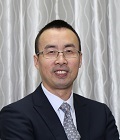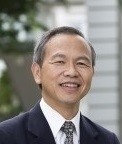| When: | Monday, January 28, 2019 - 12:00 to 13:30 |
|---|---|
| Where: | SMU School of Law, 55 Armenian Street, Level 5, Meeting room 5.04, Singapore 179943 |
Synopsis
The seminar will cover recent high-profile judicial cases on SEPs in China, like Huawei v. IDC (2014), Iwncomm v. Sony (2017), Huawei v. Sumsung (2018), and Qualcomm v. Apple (2018), mainly focusing on the following key issues related to the enforcement of SEPs:
1) The legal nature and effects of SEP owners’ FRAND statement under Chinese law. Should a FRAND statement be viewed as a contract between SSO and its members with third party beneficiaries (standard implementers), a unilateral juristic act under Civil Law, or a usufructuary right (in rem right) granted to all future standard implementers? Should Chinese law or foreign law govern the interpretation of the patent policy of an SSO?
2) The calculation of reasonable royalty rate for SEPs. The most difficult part to agree during a FRAND licensing negotiation is whether a licensing fee is "reasonable" or not. Could an SEP owner, when negotiating with potential standard implementers, insist a global rather a county-specific license? Should a reasonable royalty rate be a uniform and specific one or a range of royalties? Under what circumstances should the smallest saleable unit price (SSUP) theory be applied? Could an SEP owner insist on charging a certain percent of the sale price of the whole end product, such as smart phone, as royalty for the SEPs?
3) FRAND statement and injunctive relief under patent law. Under what circumstances would an injunctive relief be available to an SEP owner? How to determine whether an SEP owner or standard implementer is a willing licensor or licensee? To deny injunctive relief under the Patent Law or Anti-monopoly Law? What’s the difference?
Speaker

Cui Guobin is the Associate Dean for International Affairs and Academics as well as Director of the Center for Intellectual Property at Tsinghua University Law School. Professor Cui earned his Ph.D. in law, LL.M., and B.Sc. in Chemistry from Peking University, and his second LL.M. from Yale Law School. His scholarly interests include intellectual property, antitrust, property, and law and economics theory. He has published more than 20 law review articles and two popular casebooks, “Patent Law: Cases and Materials” (1st edition in 2012, 2nd edition in 2015) and “Copyright Law: Cases and Materials” (2014). Before he joined Tsinghua in 2002, he had practiced IP law in Beijing and Shanghai. In 2008, he worked as an intern for Judge Rader at the U.S. Court of Appeals for the Federal Circuit. He was a visiting scholar at the George Washington University Law School in 2008, the University of Chicago Law School in July 2012, the University of Washington Law School in May 2013,and the University of New South Wales in February 2018. He also serves as adjunct researcher, the Center for Judicial Protection of Intellectual Property, the Supreme People’s Court of China; Legal advisor, Beijing High People’s Court; Specialist Juror, Beijing Intellectual Property Court; and Legal advisor, the People’s Court of Haidian District of Beijing.
Chair

Kung-Chung LIU holds an LL.B. and LL.M. from National Taiwan University and a Doctorate from the Ludwig Maximilian Universitaet (University of Munich). He was a Research Fellow at Academia Sinica, Taiwan until 2017. In 2003, he was a Visiting Professor at the Faculty of Law of the National University of Singapore and a Visiting Senior Research Fellow for the IP Academy of Singapore. Professor Liu has served as one of the founding Commissioners of the National Communications Commission in Taiwan between 2006 and 2007. In 2014-15, he was a Visiting Professor at the School of Law, Singapore Management University, and the Founding Director of the Applied Research Centre for Intellectual Assets and the Law in Asia (ARCIALA). In addition, he has been co-appointed Professor at the Renmin University, China (2017), and the Graduate Institute of Technology, Innovation & Intellectual Property Management, National Chengchi University, Taiwan (since 2010).
This event is by invite only.
Last updated on 12 Jul 2021 .